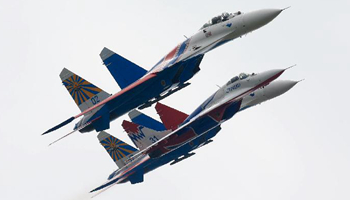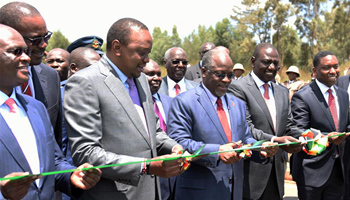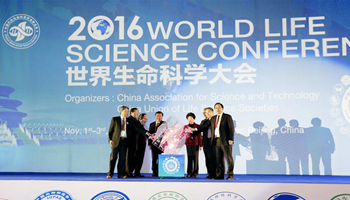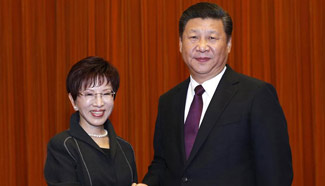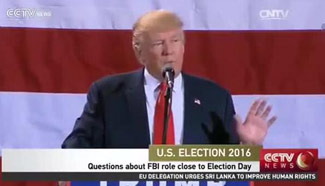MOSCOW, Nov. 2 (Xinhua) -- As the Shanghai Cooperation Organization (SCO) has successfully coordinated anti-terror efforts and upheld regional security, the bloc needs to do more to step up economic cooperation among its members, a leading Russian scholar has said.
Established in 2001, the SCO is a regional political, economic and security organization that has China, Kazakhstan, Kyrgyzstan, Russia, Tajikistan and Uzbekistan as full members.
India and Pakistan signed the SCO's Memorandum of Obligations in June, kick-starting the process of their accession into the group, which also has a number of observers and dialogue partners.
The SCO has now set up an efficient regional anti-terror structure in the Uzbek capital city of Tashkent, which has coordinated a series of regular training exercises and built up a great level of trust among its members, Alexander Lukin, director of the Center for East Asian and SCO studies at Moscow State Institute of International Relations, told Xinhua in a recent interview.
As some SCO member states are less experienced in the struggle against terrorism, he noted, frequent joint drills have played an important role in mutual learning and transfer of experience, and have helped strengthen regional security.
As to economic cooperation, however, the expert pointed out that more needs to be done.
Lukin said that although a number of documents on the promotion of economic development within the SCO have been adopted, the mechanism for funding joint projects is still not enough.
Joint projects are currently financed unilaterally by China, so first of all, the bloc needs to establish a mechanism for funding projects by all its members, he said.
He suggested setting up a SCO institution like the New Development Bank, which was created by the BRICS countries of Brazil, Russia, India, China and South Africa, or a special fund.
The expert placed great expectations on the creation of a free trade zone between the Russia-led Eurasian Economic Union (EAEU) and China, which is now actively discussed as a first step in the alignment of the EAEU and the China-proposed Belt and Road Initiative.
The Belt and Road Initiative comprises the Silk Road Economic Belt and the 21st Century Maritime Silk Road and aspires to build a trade and infrastructure network connecting Asia with Europe and Africa along the ancient Silk Road routes. The EAEU groups Armenia, Belarus, Kazakhstan, Kyrgyzstan and Russia.
Such a multilateral initiative would generate ample benefits, and the SCO should help get more countries involved, Lukin said.
He added that the initiative will receive an impetus with the accession of India and Pakistan to the SCO, as New Delhi has shown interest in the economic cooperation and investment in Central Asia.
The promising organization, he said, will have more potential to be tapped through its expansion, as the number of its observers and dialogue partners has been increasing steadily.
In particular, he pointed to Iran, a large country in the Middle East that formally applied for full membership in 2008 and currently has an observer status.




